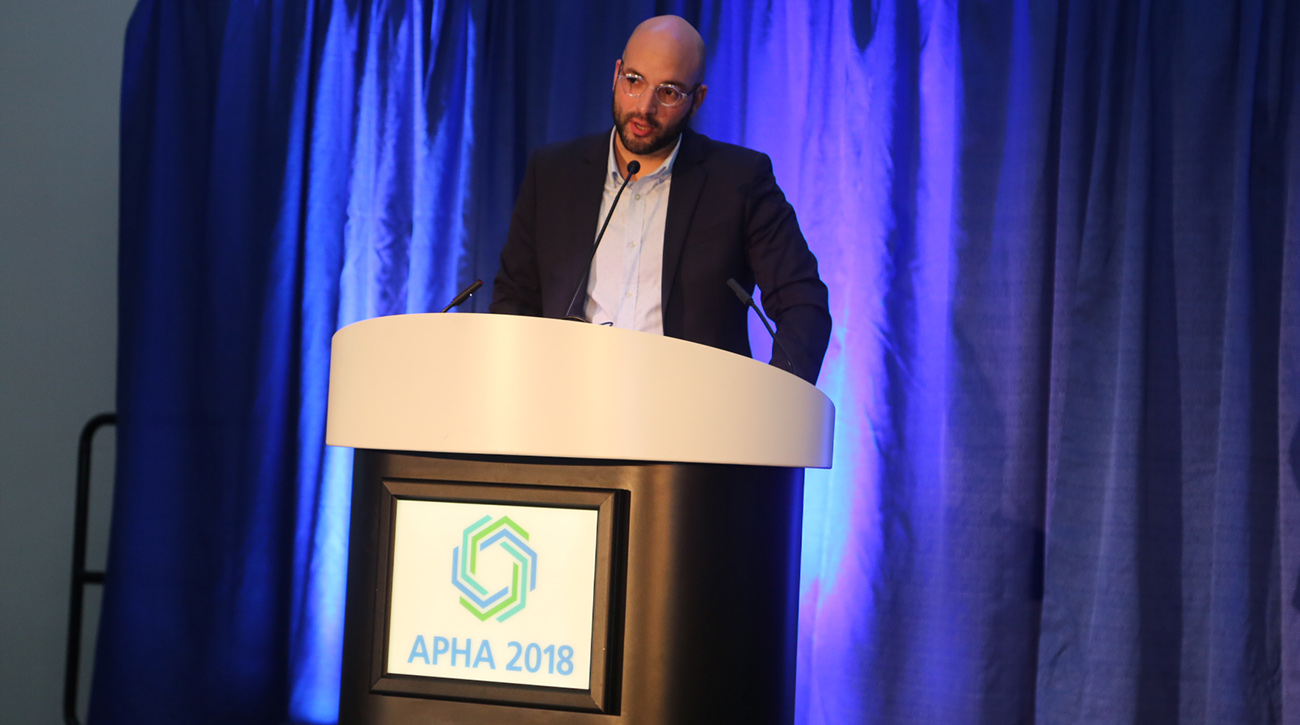Prevention and Community Health Associate Professor Carlos Rodríguez-Díaz was recently recognized for his work in leadership development at the American Public Health Association’s Annual Conference in November.
Rodríguez-Díaz received the Lyndon Haviland Public Health Mentoring Award and says that the experience is particularly meaningful because he was nominated by those whom he has mentored.
“It was overwhelming, and at the same time it was a great sense of satisfaction,” he says. “It’s the people that I’ve been working with that are recognizing my role as a mentor.”
The Milken Institute School of Public Health (Milken Institute SPH) professor, who joined the school in September of this year, never set out to be a mentor. In fact, he feels kind of young to be a mentor at this point in his career. Yet, his motivation to pay it forward and foster the curiosity and professional development of the next generation of public health researchers and leaders led him to the role.
Providing mentorship opportunities also helps to ensure that the public health field is representative of the diverse populations that it serves, says Rodríguez-Díaz, whose work focuses on HIV care and prevention, sexual health promotion and health equity through actions in the social determinants of health. “I think we are past due in providing structured opportunities for people with different backgrounds to excel in the work of public health, and I’m not only talking about racial, ethnic backgrounds. I’m also talking about sexual orientation, gender diversity and age. We need to demonstrate that we are what we say we are, and by allowing professionals to grow in our field, it’s a way to make that happen.”
When it comes to the mentorship experience, Rodríguez-Díaz lets his mentees take the lead, but he has two conditions before engaging in a mentor/mentee relationship: First, he wants his mentees to be better than him, and by that he wants them to excel to a point where they no longer need him as a mentor. Second, he encourages his mentees to continue paying it forward.
“I had really good mentorship experiences that invited me and inspired me to be a good mentor when I had the chance, so I try to also model the experience of mentorship so in the future, they can mentor others,” he says.
It was his own experiences with mentors that also showed Rodríguez-Díaz the importance of highlighting the unique characteristics and talents of mentees. “It was very special to me—not even knowing that I had this talent or that I was resourceful in this way, but I had a mentor who was pointing that out to me and saying, ‘Yes that’s something that you can bring to the table,’ things that I was not even considering a special talent or skill.”
Rodríguez-Díaz recently partnered with a mentee on a paper looking at the effects of Hurricane Maria on community pharmacy in Puerto Rico. The paper, titled “Community pharmacy response in the aftermath of natural disasters: Time-sensitive opportunity for research and evaluation” appears in the special issue of the Journal of Primary Care and Community Health. Similarly, he is Co-Investigator in a recently awarded grant from NIMH to his mentee, Souhail Malavé-Rivera. Together, they will be studying the health outcomes and resilience factors associated with retention in HIV care after Hurricanes Irma and Maria in Puerto Rico.,
Since coming to Milken Institute SPH this fall, Rodríguez-Díaz has already begun working with mentees on campus and says that he does not foresee a time in which he is not serving as a mentor. “Learning from my mentees and being surprised every day with brilliant ideas and passion, that keeps me going and makes me feel like I’m not working.”


